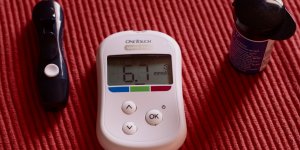| Health / Health News |
Air Pollution Can Trigger Glaucoma
Researchers found people breathing in high amounts of air pollution were at least six per cent more likely to develop glaucoma than those in clean regions.

Air pollution. Photo: JuniperPhoton/Unsplash
The disease, caused by the death of retina cells at the back of the eye, affects 60million people around the world, a 10th of whom have gone completely blind.
Scientists believe air pollution may cause glaucoma due to the constriction of blood vessels killing off the retina cells or by chemicals being directly toxic to nerves.
Scientists say the microscopic particles emitted by cars and industry are breathed deep into the lungs and enter the bloodstream. From there they constrict the linings of the blood vessels and the nervous system, and raise blood pressure.
Researchers from University College London (UCL) looked at 111,370 participants from the UK Biobank study who had eye tests from 2006 to 2010. The data was then cross-referenced with air pollution levels using volunteers' home addresses.
People in the most polluted quarter of neighborhoods were at least six per cent more likely to report having glaucoma than those in the least polluted. They were also significantly more likely to have a thinner retina - one of the tell-tale signs of early glaucoma.
Lead author Professor Paul Foster, from the UCL Institute of Ophthalmology and Moorfields Eye Hospital, said: 'We have found yet another reason why air pollution should be addressed as a public health priority. 'Avoiding sources of air pollution could be worthwhile for eye health alongside other health concerns.
'While we cannot confirm yet that the association is causal, we hope to continue our research to determine whether air pollution does indeed cause glaucoma and to find out if there are any avoidance strategies that could help people reduce their exposure to air pollution to mitigate the health risks.'
Professor Foster said the link could be much more widespread in other countries where air pollution is rife. He added: 'And as we did not include indoor air pollution and workplace exposure in our analysis, the real effect may be even greater.'
One in every 50 people over the age of 40 has early signs of glaucoma, although the vast majority go undetected at this stage. That figure rises to one in 10 of those aged over 75.
The number of people affected is expected to increase in the next few years due to an ageing population. (Tasnim News Agency)
YOU MAY ALSO LIKE





